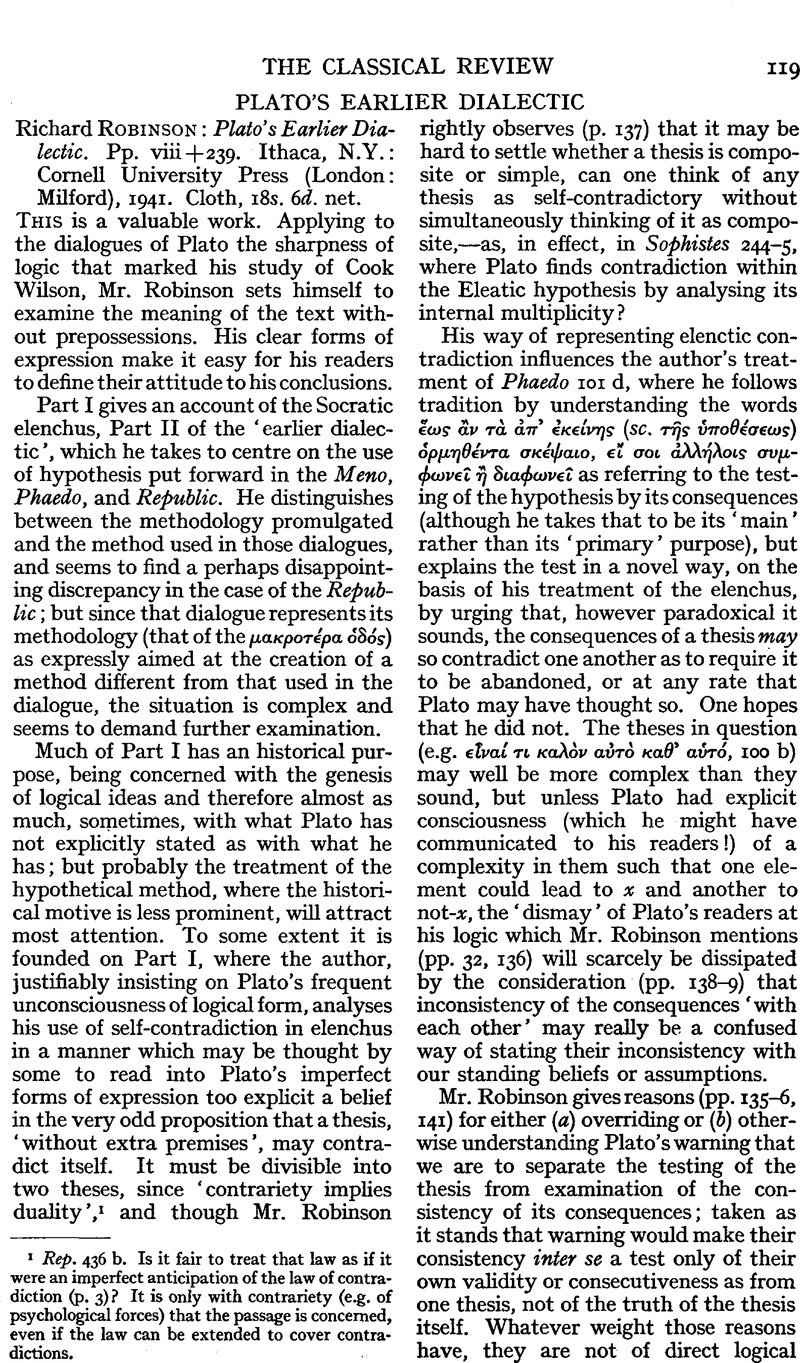No CrossRef data available.
Article contents
Plato's Earlier Dialectic - Richard Robinson: Plato's Earlier Dialectic. Pp. viii + 239. Ithaca, N.Y.: Cornell University Press (London: Milford), 1941. Cloth, 18s. 6d. net.
Published online by Cambridge University Press: 27 October 2009
Abstract

- Type
- Reviews
- Information
- Copyright
- Copyright © The Classical Association 1942
References
page 119 note 1 Rep. 436 b. Is it fair to treat that law as ifit were an imperfect anticipation of the law of contradiction (p. 3)? It is onlywith contrariety (e.g. of psychological forces) that the passage is concerned, even if the law can be extended to cover contradictions.
page 120 note 1 Perhaps its most striking feature—besides its inclusion of what may be the first accurate rendering into Englis of the ‘Line's’ opening sentences, 509 d 6 to 510 a 10—is his energetic denial both of correspondence between ‘Line’ and ‘Cave’ and of the relevance to the ‘Cave’ of the distinction between ɛἰκασ⋯α and πἰστις. But perhaps some will put this question: the ‘Line’ ends, ‘in relation with those four sections (or, classes of objects) there occur these four states in the mind…’; ɛἰκασ⋯α, therefore, is the π⋯θημα which occurs when we are ⋯π᾽ ɛἰκ⋯σι; the ‘Cave’ devises a machinery which keeps the prisoners ⋯π᾽ ɛἰκ⋯σι; continuously; why is it not merely syllogism to conclude that the π⋯θημα of the prisoners is ɛἰκασ⋯α Would not that result, logically, be neither more nor less certain if Plato himself had used the word of their condition? Consideration should be given to the effect of its prolongation, but the π⋯θημα itself must surely be present when its cause is present. So with π⋯θημα the ‘Line’ prescribes a rule (that his π⋯θημα is πἰστις) for anyone in a situation defined as beingengaged with the originals of shadows (οἶς τα⋯τα ἓοικɛ); that situation occurs in the ‘Cave’, not only once but twice; whatever Plato says about the π⋯θημα of the prisoners after release (and he says more than that they are ‘in bewilderment’), why do not the situations defined in the ‘Line’ (and realized in the ‘Cave’) fall under the rule it has prescribed?




